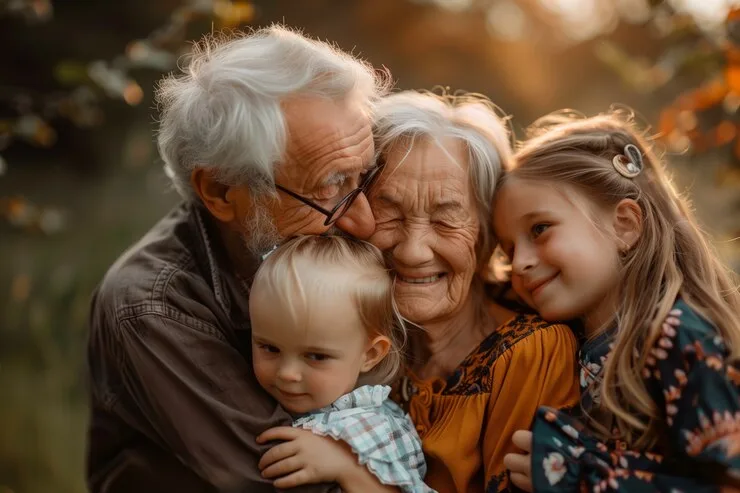The Quiet Power of Everyday Values Passed Through Generations
In an age of digital revolutions and ever-changing social norms, it is often the quietest forces that have the greatest impact. Among these are the everyday values we inherit, not through lectures or rulebooks, but through lived experiences, habits, and love passed gently from one generation to the next. These values don’t make headlines, and they’re rarely talked about in corporate presentations or trend forecasts. But they are the scaffolding of strong character, emotional resilience, and true connection.
What Are Everyday Values?
Everyday values are the small but powerful principles that guide how we live, relate to others, and face life’s challenges. They include integrity, kindness, responsibility, empathy, humility, and gratitude. These aren’t taught in a single moment; they’re modeled over time, often without words.
You see them in the way a mother wakes before dawn to prepare her children for school, in a grandfather’s refusal to waste food, in the older sibling who instinctively shields the younger one when crossing the street. These are actions done not for praise or attention, but out of something deeper, an understanding of what’s right, taught by generations before.
Inheritance Without Ceremony
Unlike property, jewelry, or heirlooms, everyday values are not passed down through legal documents or family meetings. They are absorbed through repetition and example. A child who sees their father speak gently to a cashier, or watches their grandmother lend quietly to a struggling neighbor, learns more about compassion than any textbook could convey.
This form of inheritance is powerful because it’s organic. Children internalize these values before they even have the vocabulary to describe them. And once rooted, they shape how they interpret the world, often for a lifetime.
A Bridge Across Time
What’s striking about these values is their ability to connect generations across decades—even centuries. You may never have met your great-grandmother, but if you find joy in hosting guests warmly, or take pride in saving for the future, a part of her lives on in you.
This continuity creates emotional stability. When children understand that they are part of a legacy, not just of blood, but of behavior, they grow up with a sense of belonging. That deep-rooted identity is a powerful antidote to the confusion and alienation so common today.
Neerja Raman’s memoir, The Chemistry of Belonging, is a compelling tribute to this idea. Through intimate stories of her upbringing in post-independence India and her later life in America, Raman shows us that it is not grand speeches but quiet gestures that build the scaffolding of a life rooted in purpose and meaning. Her book beautifully captures the nuance of values being “taught” not through instruction but through example.
Modern Chaos Meets Old-School Wisdom
In our fast-paced, highly stimulated world, timeless values can feel almost radical. The culture around us often celebrates quick wins, viral fame, and self-promotion. But the values passed through generations ask something else: to listen before speaking, to put others first, to stand firm in the face of adversity, and to live with dignity even when no one is watching.
These aren’t outdated ideas. In fact, they are more necessary now than ever. They equip people with the emotional strength to withstand pressure, to build meaningful relationships, and to live a life not just of success, but of substance.
When Life Gets Hard
The true strength of inherited values is revealed during hardship. In times of illness, job loss, family conflict, or personal failure, these quiet teachings step in. A belief in perseverance may give someone the courage to keep going. A lesson in honesty might stop them from compromising their integrity. The memory of a parent’s resilience may provide the model needed to get through their own storm.
These moments of decision don’t look heroic. They rarely get applause. But they are what hold families, communities, and ultimately, societies together.
Losing Touch With Legacy
As the world speeds up, there is a risk that the next generation may inherit less of these invisible treasures. Technology, while powerful, cannot replace the transmission of human values. Social media teaches influence; families teach integrity. YouTube tutorials show how-to; grandparents show why-to.
If families and communities don’t actively model and talk about these values, children may grow up rich in knowledge but poor in wisdom.
That’s why intentionality matters now more than ever. It doesn’t require perfection, just presence. Taking time to talk, listen, and share stories is enough to keep the chain of values unbroken.
How We Can Carry the Torch
We don’t need to be elders to be carriers of legacy. Each of us, in our small acts of patience, generosity, and fairness, contributes to a quiet ripple effect that might last for generations. Some ways to do this include:
- Sharing family stories over meals.
- Modeling respect in everyday interactions.
- Writing letters or journaling about what truly matters.
- Creating simple rituals, like gratitude at bedtime or community service weekends.
These small gestures accumulate. They matter.
Final Thoughts
The quiet power of everyday values is one of the most underrated forces in human history. Unlike trends and tools, they don’t become obsolete. They do not require upgrades. They aren’t disrupted by new technologies. And they are never forgotten by those who experience them.
As we look toward a future filled with innovation and uncertainty, let us not forget the wisdom of the past. Let us remember that while gadgets expire and trends fade, the value of love, honesty, humility, and kindness only grows.
Let’s not just build futures, weave legacies.




